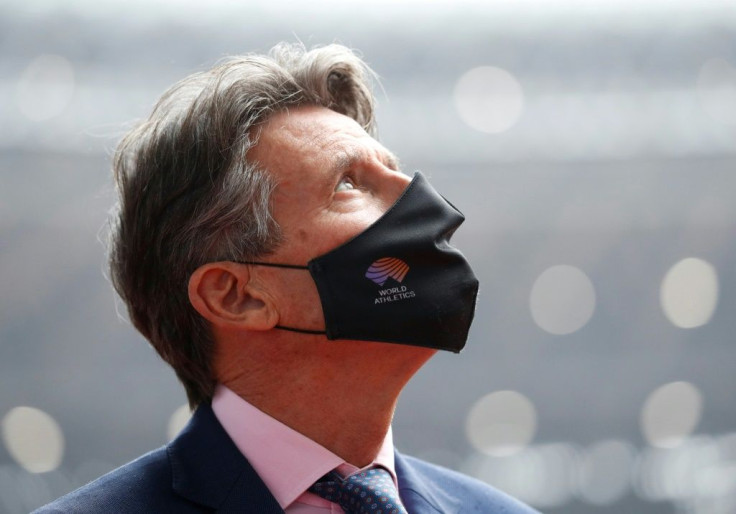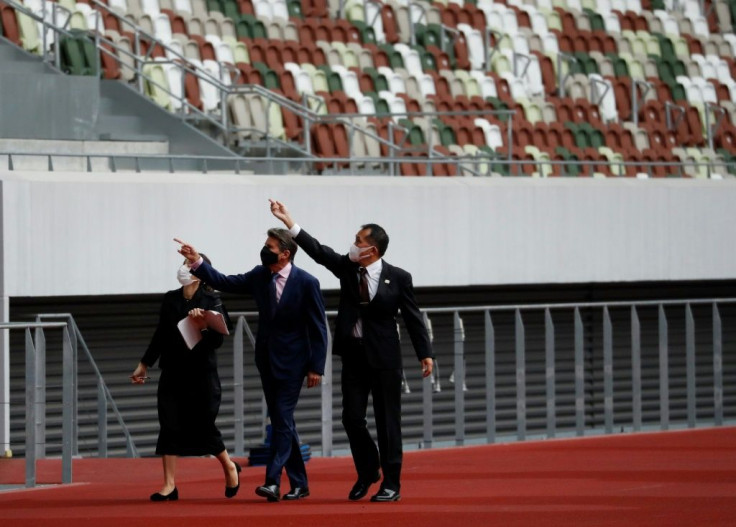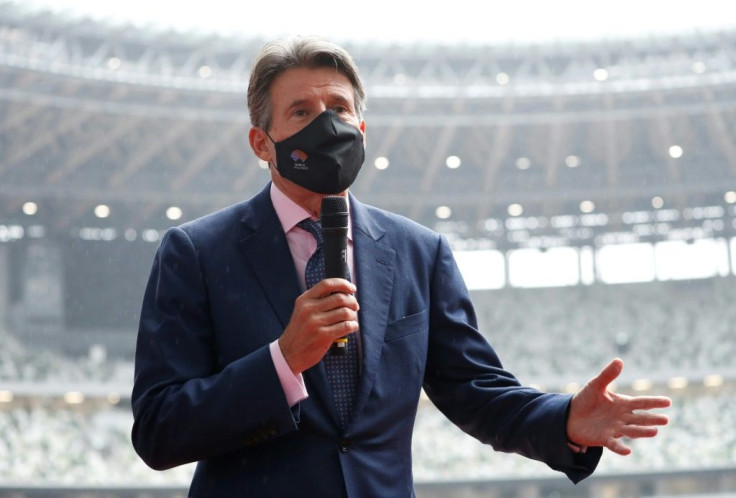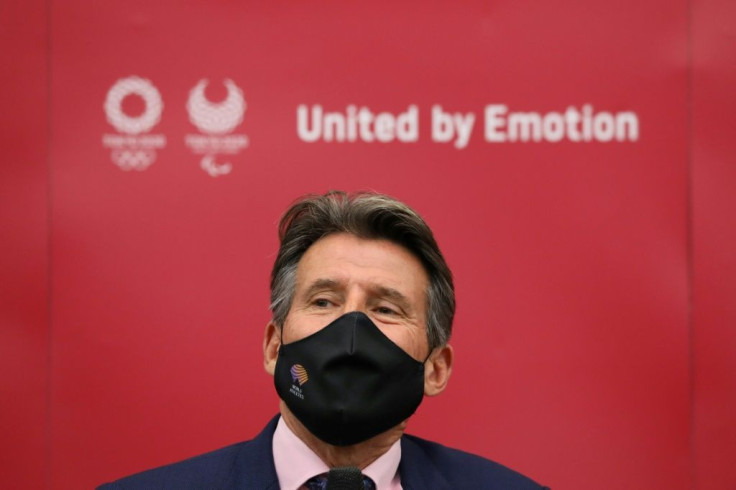Athletics Boss Coe Backs Right To 'Take Knee' At Olympics
World Athletics president Sebastian Coe said competitors should be able to "take the knee" on the podium at the postponed Tokyo Olympics, following an outcry over moves to ban protests.
Coe, who was inspecting the national stadium where Olympic track and field will be contested next year, said any protests must be carried out with "respect" for other competitors.
A ban on demonstrations at the Olympics, issued in January, has come under extra scrutiny since the Black Lives Matter movement flooded sports following George Floyd's death in US police custody in May.

"I've been very clear that if an athlete wishes to take the knee on a podium then I'm supportive of that," Coe told reporters in Tokyo.
"The athletes are a part of the world and they want to reflect the world they live in," he added.
"And that is for me perfectly acceptable, as long as it is done with complete respect for other competitors, which I think most athletes properly understand."

The comments by Coe, an International Olympic Committee member and touted as a potential future leader of the body, echo his remarks last month to The Times, when he also supported respectful protest and said it was impossible to "separate sport from social and cultural issues".
The IOC issued updated guidelines on athlete activism in January, outlawing any kind of demonstration on the medal podium or field of play.
But it has hinted it may be willing to soften its stance, and is backing discussions led by the Olympic Athletes Commission to consider ways of allowing "dignified" support for anti-racism initiatives.

IOC chief Thomas Bach said in June that the commission was exploring different ways "Olympic athletes can express their support for the principles enshrined in the Olympic charter".

The act of placing one knee on the ground in protest was made famous by former NFL quarterback Colin Kaepernick, who began kneeling during pre-game renditions of the US national anthem in 2016 to protest police brutality against blacks and other minorities.
He was ostracised by the league and even criticised by US President Donald Trump, but in June the NFL sanctioned "peaceful protests" and world football's governing body FIFA has urged leagues to use "common sense" when deciding whether to discipline political activism.
In June, US athletes and 1968 Mexico Games icon John Carlos, who was famously kicked out of the event for raising his fist in a black power salute, called on the IOC to scrap the ban on protests.
"Athletes will no longer be silenced," they wrote.
The issue of competitor activism is among the many thorny questions facing organisers of the Games, which are now set to open a year late on July 23, 2021 after the unprecedented postponement due to the coronavirus.
As questions hover about holding the Olympics during a pandemic, organisers are working on countermeasures they hope will convince athletes, spectators and the Japanese public that the Games can go on.
Coe said he was confident the event would be possible.
"There may have to be some adaptations, there may need to be some differences but I'm absolutely convinced that even under those circumstances they will still be a fantastic Games," he said.
And he pointed to the two new world records set overnight in Valencia, in the 10,000m and women's 5,000m, as evidence that athletes were raring to go.
"What it tells me is that the athletes have weathered the pandemic months extremely well," he said.
"They have been extremely difficult circumstances, many of them have been limited to their own houses for many months. And what they have done is they've maintained a very high level of fitness," he added.
"That will bode very very well for the performances here next year... I think athletics will be at the very top of its game."
© Copyright AFP 2024. All rights reserved.





















